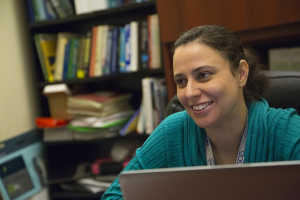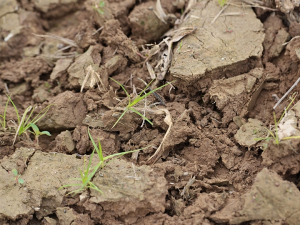UH researcher receives DOE grant to study fundamental interactions
While microorganism like bacteria and fungi have co-existed for eons, there is still much to discover about them, their interactions and the benefits they offer the world.
“I’m an environmental scientist, so I want to tap existing natural resources, understand them and see how they can benefit us even more,” said Debora Rodrigues, associate professor of civil and environmental engineering at the UH Cullen College. “Such as the microbes that a lot of people don’t actually appreciate — 99 percent of microbes are doing good things for us and we don’t even know about them.”
Now, thanks to a research project funded by the U.S. Department of Energy, Rodrigues will have the opportunity to study bacterial-fungal fundamental interactions in soil.
Bacteria and fungi are integral to a healthy ecosystem. They can impact plant health, development and productivity, breakdown of contaminants, soil health, and sustainable agriculture and bioenergy production.
Rodrigues is part of an international team of researchers, including Patrick Chain and other researchers at Los Alamos National Laboratory; Jamey Young of Vanderbilt University; and Pilar Junier of the University of Neuchâtel in Switzerland.
“Science and engineering people tend to look at microorganisms separately and don’t actually focus on their interactions,” Rodrigues said. “We’re looking at a more cohesive picture because it’s completely interconnected.”
The three-year grant is renewable and total funding for the project could add up to $7.5 million. Rodrigues, who will be conducting related experiments in her laboratory, received $508,286 of the funding.
Initially the team will be studying recently discovered bacteria that live inside fungal hosts as well as those that live separately, but in close association with each other.
She hopes to ultimately link these bacteria-fungi communities to plants and study those relationships.
“We want to understand how these interactions work and then how we can modify these functions to improve crop production and sustainable bioenergy production for our country,” Rodrigues said.
“This is a very novel field,” she added. “Any findings that we get will be very rewarding.”

